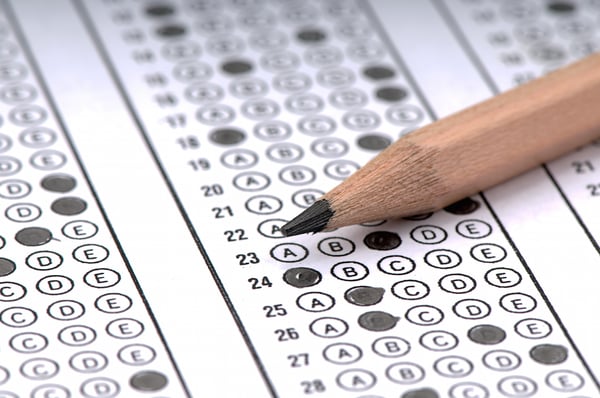Published on
Authentic Learning: Rethinking Quizzes and Exams for Greater Impact

A key component of authentic learning is looking at how we assess learners. As classroom activities are developed to be more relevant for learners, it is only natural that the assessments also be relevant. The model for assessment in authentic learning tends to focus on what educators typically call higher order thinking skills which focus on how students use their knowledge to create new ideas or demonstrate their analytical ability. Often this type of assessment will take form in the shape of projects, but where does that leave traditional quizzes and exams
Traditional summative assessments, such as multiple choice exams, continue to be a popular option for student assessment within higher education, particularly in online courses. In theory, they are very practical tools for assessing student learning when testing students’ body of knowledge over an entire unit or semester. They also make managing the assessment of a large lecture course feasible. While there is a time and place for this type of assessment, it has its weaknesses. In the context of authentic learning, traditional examination methods fail to show the depth of student learning about a topic, since they often promote lower level thinking skills, such as remembering and summarizing information. While these skills are a necessary component of the learning process, they do not show if students can apply, create or synthesize information when they are required to develop a project or produce writing.
However, traditional exams and quizzes can be used in more meaningful ways to assess student learning. Since students need to demonstrate a baseline knowledge or vocabulary, quizzing can be used to help reinforce their comprehension if used to develop their mastery. This concept of mastery quizzing is relatively simple: you allow students to take a quiz over the essential concepts or vocabulary multiple times until they reach a level of mastery, which you determine. Perhaps passing the quiz with 80% is proficient for students to move on, or perhaps you would like them to achieve 95%. This works for two reasons. First it removes the quizzing from a high-stakes to a low-stakes context, since students are given multiple attempts to do well. Second, it requires the students to reflect on what they don’t know and gives them an opportunity to go back to address the gaps in their knowledge. Of course, not all students will see it as a learning opportunity, but how they use the mastery quizzes is largely determined by how faculty teach students how to use them in an effective manner.
In terms of exams, it is possible make them more comprehensive for checking student’s understanding. One of the most effective ways to do this is to incorporate writing into the exam. The writing component does not have to become a long essay in order to test the students’ knowledge and skills, but rather having them answer shorter vignettes can reveal the depth of their understanding. One way to do this is to create a scenario that will allow students to demonstrate their knowledge of the topic. Providing a short list of criteria can help guide student thinking about the scenario. For example, in a business course, you could pose a hypothetical situation where students need to make a judgment call about ethical behavior. Depending on the type of scenario, the criteria might require students to define the ethical dilemma, provide a suggested action, and offer a rationale as to why they chose the action. This type of situation can engage students in critical thinking because the problem might be ambiguous and they need to determine how to handle it based on what they learned in the course. While this may not be a perfect solution, the students’ performance on the scenario will help you determine if students have a grasp on the content or not.
We are not suggesting that you totally eliminate exams and quizzes from your course; there are valid reasons as to why they are used. We want to encourage you to consider trying a mastery quiz in your course if it makes sense. Or think about reframing a part of an exam to include a writing component so your students have the opportunity to demonstrate what they know. Remember, the beauty of implementing authentic learning practices is that it should happen incrementally and organically based on what’s feasible and comfortable for you.
This is the second installment of an ongoing series by Theresa Gilliard-Cook and Brandon West discussing different facets of authentic learning. To read the series introduction, please click here.
If you would like to subscribe to receive reminders about future posts, please click below.
Next installment coming soon
Author Perspective: Educator



